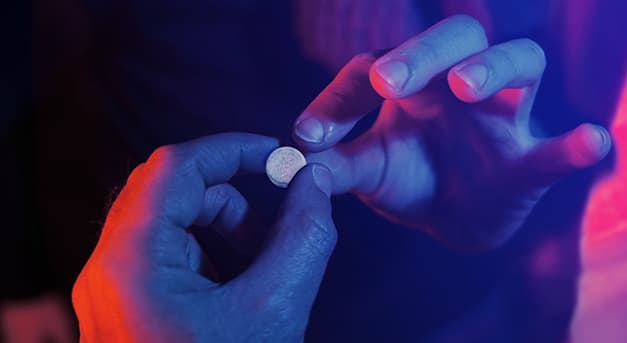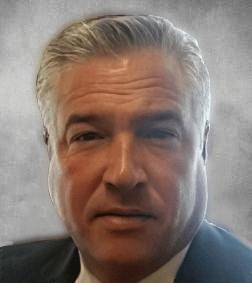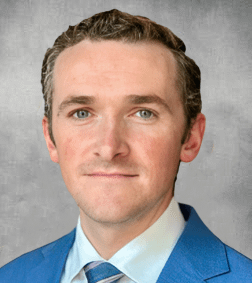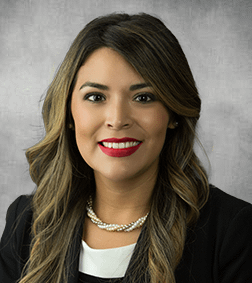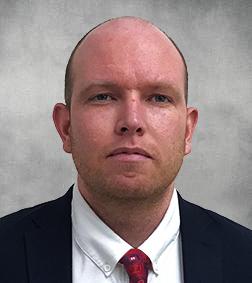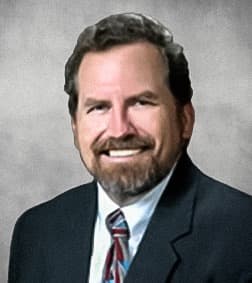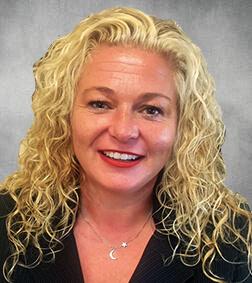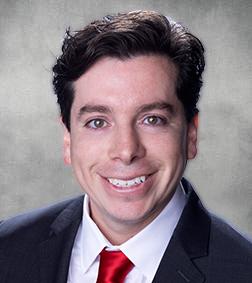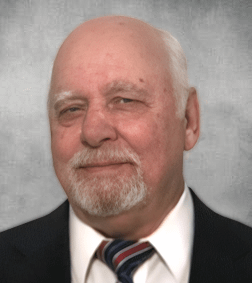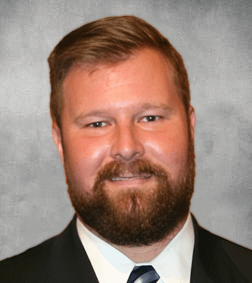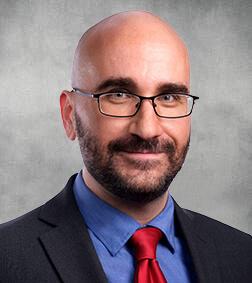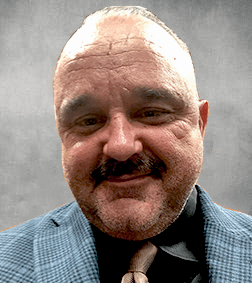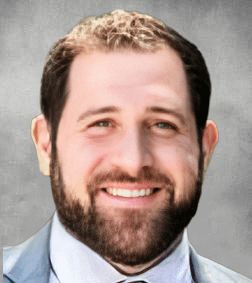Florida Drug Crime Attorney
Defending Your Rights with Decades of Experience
Are you faced with drug crimes charges in Florida? You are probably experiencing anxiety, confusion, and worry over your future, and rightly so! Florida carries severe penalties for those convicted of drug crimes, whether it involves trafficking, selling, possession, or more. Crimes involving prescription drugs, meth, heroin, cocaine, marijuana and other drugs can significantly impact your future and can be prosecuted on both the state and federal level. With the right defense, your future can be aggressively protected. At Musca Law, our skilled Florida drug crimes lawyers are backed by decades of collective experience. We are dedicated to each of our clients, treating them with the respect and individual attention necessary to obtain the best possible outcomes on their behalf.
Types of Drug Crimes
Depending on the type of crime committed, penalties may be classified as either misdemeanors or felonies, and are subject to varying degrees of severity.
Common drug crimes involve the following:
- Manufacturing a controlled substance
- Delivering a controlled substance
- Possessing a controlled substance
- Possessing a controlled substance with the intention to sell, manufacture, or distribute a controlled substance
- Trafficking a controlled substance
- Selling a controlled substance
- Falsely obtaining a controlled substance
- Falsely prescribing a controlled substance
Other drug-related offenses are categorized based on where they are committed, such as near a school or childcare facility. Steep prison sentences and hefty fines are common for drug crime convictions.
Possessing and Attempting to Sell Drugs in Florida
As directed by the Florida Statutes Title XXXIII, Chapter 499.03 (1), an individual may not possess (or possess with an intention of selling) any drugs that are harmful, toxic, potentially habit-forming, or brand new (on the market). Individuals who are exempt from this rule include:
- People who have received a prescription for the drug from a practitioner who is licensed to prescribe drugs of this nature
- An employee or representative of an agency that deals with these drugs as part of regular, legal business practices
- Medical professionals who control the drugs as part of daily work (e.g. doctors)
Any violation of Chapter 499.03(1) of FS is considered a 2nd-degree misdemeanor.
Possessing and Attempting to Sell Controlled Substances in Florida
In Florida, possessing a controlled substance with the intent to sell, manufacture, or deliver is punished to the fullest extent of the law. Prosecutors have a zero tolerance for those who are charged with drug crimes, and often fight for the accused to face the maximum amount of prison time and monetary fines. Of course, the case of obtaining and attempting to sell a controlled substance may result in more severe forms of punishment. As indicated in FS Title XLVI, Chapter 817.563, the possession and attempt to sell any controlled substances is completely unlawful in the State of Florida.
Any individual who attempts to complete this act will potentially face one of two punishments, depending on the type of drug that was the focal point of the crime:
- Anyone found guilty of the possession and/or sale of substances listed under Chapter 893.03 (1), (2), (3), or (4) will be charged with a 3rd-degree felony.
- Anyone found guilty of the possession and/or sale of substances listed under Chapter 893.03 (5) will be charged with a 2nd-degree misdemeanor.
For a full list of drugs and schedules, be sure to read FS Title XLVI, Chapter 893.03.
Named Top Criminal &
DUI Defense Lawyers By Newsweek.
Our Awards & Accomplisments
Definition and Penalties
Under Florida Statutes Section 893.13(1)(a), it is illegal for “a person may not sell, manufacture, or deliver, or possess with intent to sell, manufacture, or deliver, a controlled substance,” such as cannabis, cocaine, or heroin.
Violating this section can be charged as a second or third-degree felony, depending upon the type of controlled substance involved. For example, the possession of cannabis - a Schedule 1 substance - with the intention of selling, manufacturing, or delivering is a third-degree felony. However, possessing cocaine – a Schedule 2 substance – with the intent to distribute, manufacture, or deliver is classified as a second-degree felony. For those charged with a third-degree felony, he or she may be imprisoned for up to five years. For individuals charged with a second-degree felony, he or she may be imprisoned for up to fifteen years.
To prove that a person possessed a controlled substance with the intention to sell, manufacture, or deliver, the prosecutor must establish three elements beyond a reasonable doubt:”
- The defendant possessed a certain substance intending to sell, manufacture or deliver it;
- The substance is a controlled substance as defined in Florida Statute Section 893.03; and
- The defendant had knowledge of the controlled substance.
Under Florida law, the term “sell” means to deliver or transfer something to another individual in exchange for something of value or money, or a promise to provide something of value or money. “Possession” means that the alleged offender exercised the right of ownership, management, or control or had personal charge over the thing possessed.
Proving Possession With Intent to Sell
In most drug possession cases in Florida, the offender did not intend to sell or deliver controlled substances. The “intent to sell” element is often added to a simple possession charge in order to increase the penalties, extract a harsher plea, or intimidate the accused.
If the prosecution seeks to enhance the simple possession charge to an intent to sell or deliver, they can do so by using the following evidentiary factors to prove the offense, including:
- The presence of large amounts of cash around the vehicle or premises where the controlled substance was found;
- The presence of bags and other packaging materials that are consistent with drug sales and drugs;
- The presence of paraphernalia such as balances, rolling papers, scales, mixing devices, and testing kits;
- The presence of weapons;
- Admissions by the accused offender and those associated therewith;
- The nature and amount of controlled substances located.
Possessing and Attempting to Sell Counterfeit Controlled Substances in Florida
As directed by FS Title XLVI, Chapter 831.31 (1), the possession and intent to manufacture and sell any counterfeit controlled substance is completely unlawful in the State of Florida. Anyone who attempts to manufacture or sell a drug listed under Chapter 893.03 (1-4) will face charges of a 3rd-degree felony, while individuals who attempt to manufacture or sell drugs included in Chapter 893.03 (5) will be charged with a 2nd-degree misdemeanor.
Defining “Imitation Controlled Substances”
The Florida Statutes Title XLVI, Chapter 817.564 (1) defines “imitation controlled substances” as pills, capsules, tablets, or any other substance that is not a controlled substance mentioned in Chapter 893.03, which has a high potential for abuse, and which:
- May be mistaken for an actual controlled substance because it shares a similar color, shape, markings, and packaging as the real drug (pill, capsule, tablet, etc.)
- Is advertised as a controlled substance but does not induce the same effects
Any possession and/or intention to sell a drug of this nature will result in a 3rd-degree felony.
Determination of a Valid Drug Crime Case on the Grounds of “Intent to Sell”
As outlined in the Florida Statutes 893.13 (1-a) and (2-a) and the instructions laid out for members of a criminal jury highlighted in Case 25.2, members of the court must prove (without any doubt) that:
- The defendant had manufactured, sold, delivered, purchased, or intended to sell a specific type of substance.
- The substance was successfully identified.
- The defendant was fully knowledgeable of the substance’s presence in his or her environment.
If the defendant has been arrested for delivering cannabis (20 pounds or less), the court must prove (without a doubt), that this individual was trafficking the specified amount of the herb. (Such decisions will result in charges of a misdemeanor.)
Keep in mind that Case 25.2 does not include “manufacturing” as the processing, production, compounding, or final preparation of any drug involved in the incident.
Understanding the Terminology of Case 25.2 for Drug Crimes on the Grounds of “Intent to Sell”
Here is a closer look at the terminology set out for jurors in Case 25.2 for a case of drug crimes, on the grounds of intent to sell:
- “Sell” refers to the transference or delivery of a product to another person in exchange for money or guaranteed expenses.
- “Manufacture” refers to the processes of producing, propagating, compounding, growing, or cultivating a controlled substance by extracting chemicals from the natural source or synthesizing varieties in a laboratory (also includes packaging and re-labeling).
- In this case, “cannabis” refers to the buds, stems, leaves, flowers, and any other parts of the cannabis plant (either by growing or receiving the plant).
Florida Drug Trafficking & Conspiracy Charges
In Florida, drug trafficking involves the cultivation, manufacture, distribution, and sale of substances that are subject to state drug prohibition laws. Federal, state, as well as local law enforcement agencies aggressively pursue drug suspects and prosecute them to the fullest extent of the law. State law imposes minimum sentences for people who are convicted of drug trafficking. These minimums range from three years in jail and a $25,000 fine to 25 years in jail and a $500,000 fine. The exact minimum jail sentence, as well as the specific monetary fine imposed, depend upon the type of controlled substance at issue, as provided in the following examples:
Cannabis
- 25 to 2,000 pounds or 300 to 2,000 cannabis plants is punishable by a minimum of three years in prison and a $25,000 monetary fine
- 2,000 to 10,000 pounds or 2,000 to 10,000 cannabis plants is punishable by a minimum of seven years in prison and a $50,000 monetary fine
- Over 10,000 pounds or 10,000 cannabis plants is punishable by a minimum of fifteen years in prison and a $200,000 monetary fine
Cocaine
- 28 to 200 grams is punishable by a minimum of three years in prison and a $50,000 monetary fine
- 200 to 400 grams is punishable by a minimum of seven years in prison and a $100,000 monetary fine
- 400 grams to 150 kilograms is punishable by a minimum of fifteen years in prison and a $250,000 monetary fine
The federal government imposes even harsher punishments on those who engage in drug trafficking.
Conspiracy
If you are charged with drug trafficking on behalf of a criminal organization or gang, your penalties for drug trafficking are likely to be more severe.
It is important to realize that you do not have to be accused of selling drugs in order to face a charge of drug trafficking. Just being caught with certain amounts of drugs, including prescription drugs without a prescription, can result in a drug trafficking or conspiracy to commit trafficking charge.
Florida Drug Possession Charge
The drug laws in Florida are among the harshest in the country. Merely possessing a controlled substance such as heroin or cocaine is punishable as a third-degree felony, which carries with it a prison term of up to five years and hefty monetary fines.
Florida recognizes two types of drug possession, which includes the following:
- Actual possession. This occurs when a law enforcement officer finds drugs on your person, for instance, in a shirt pocket. Whether you own the drug is not relevant for the purposes of this charge. For example, if you borrowed a coat from a friend who had a controlled substance such as cannabis in his or her pocket, the fact that it is not yours is not a defense to possession charges. The best way to challenge an actual possession charge is to question the stop and search that resulted in the police finding drugs on your person. A law enforcement officer must have reasonable suspicion that you are about to commit, or committed, a crime in order to lawfully stop you. This has to be more than a hunch. Once the officer has reasonable suspicion to stop you, he or she must have probable cause to conduct a search. If he or she does not have probable cause to conduct a search, then the charges can be dismissed.
- Constructive possession. If you are facing possession charges for drugs that were not on your person, but located in another place or common area, the prosecutor must prove constructive possession. This means that you must know the drugs were in that specific location and you had the ability to exercise control over them. You may be charged with constructive possession if you were a passenger in a vehicle where drugs were found in the glove compartment or trunk. To prevail on this charge, the prosecution must prove the following:
- You had dominion and control over the controlled substance;
- You knew that the controlled substance was in the location where police found them; and
- You knew that the controlled substance was illegal.
A charge of constructive possession can be challenged by questioning the stop and search, as with an actual possession charge. It can also be challenged that the prosecutor did not establish all of the necessary elements of constructive possession beyond a reasonable doubt.
Cocaine Possession Charges
Florida law enforcement treats cocaine possession as a serious matter. If you are charged with the possession of crack cocaine or powder in Florida, do not assume that you are without legal options. You have the right to a seasoned criminal defense lawyer at all stages of a criminal proceeding.
It is best to work with an attorney who has extensive knowledge of both state and federal drug possession laws. It is also critical to have an attorney by your side who is respected by the local court systems and is driven to fight for your legal rights and interests.
The Florida criminal defense attorneys at Musca Law have helped countless people in all areas of the state avoid the harsh punishment associated with drug possession charges, including cocaine possession. Contact Musca Law today at (888) 484-5057 to schedule a free and completely confidential case consultation.
Penalties in Florida Cocaine Possession Charges
If your teen was arrested for possessing cocaine at a frat party or police found the substance in your vehicle at a checkpoint, you face a third-degree felony charge, which carries with it the following penalties:
- Up to five years in jail
- Two-year suspension of your driver’s license
- Probation terms that are extremely strict
- A maximum fine of $5,000
Many life-altering convictions for cocaine possession have occurred because the accused did not hire competent legal counsel to fight on his or her behalf. As Florida cocaine defense attorneys, we fight hard for the legal rights and interests of each client and mount the strongest defense on his or her behalf.
What the Attorneys at Musca Law Can Do for Those Facing Cocaine Possession Charges
There are several laws in a drug defense case that many attorneys are not familiar with or they simply fail to take the time to pursue. A strong defense begins at the very moment you hire an attorney at Musca Law:
- In-depth investigation. Our lawyers will conduct an in-depth investigation of several factors immediately. If necessary, our lawyers will retain the services of a private investigator to evaluate police tactics and how the evidence used against you was obtained. If the evidence that law enforcement collected was obtained illegally or unconstitutionally, our attorneys will refute that evidence and seek to have the charges dismissed. We will also seek out the testimony of witnesses in order to contradict the officer’s version of how and why the search and seizure was conducted.
- Drug Court. Florida has a Drug Court program that is an alternative to prison. If you are facing cocaine possession charges, Drug Court may be your best option. Once you complete the Drug Court program, the court will dismiss your charges and you will be left with a clean record.
- Challenging unfair tactics. If law enforcement was overly and unfairly aggressive with you, our attorneys are fully prepared to take your case to trial to fight for your legal rights and interests.
- Pretrial Diversion. If you are a first-time offender and meet other strict criteria, our attorneys will fight for you to enter a Pretrial Diversion program for the possession of cocaine. This includes ten to 24 hours of community service as well as random drug testing. Once you complete this program, your charges will be dismissed.
A conviction for cocaine possession can have several serious consequences, which can harm a person’s financial, professional and personal future. Specifically, a person can lose their professional license and their job and have issues with self-esteem and interpersonal relationships. A felony conviction can cause you to lose your right to vote and make it difficult to find gainful employment, obtain a monetary loan, and find suitable housing.
Possession with Intent to Sell Methamphetamine Charges
In Florida, the offense of possession with the intent to sell methamphetamine, or “meth,” is an extremely serious charge that carries with it extremely strict penalties. Often referred to as “crank” or “crystal meth,” meth is classified as a Schedule II controlled substance that is known to be a highly addictive narcotic drug. While the simple possession of meth is one thing, the possession with intent to sell is another and is aggressively prosecuted by the state. If you are found guilty of the intent to sell meth, you may face an extended prison sentence, harsh monetary fines, and other serious consequences. At Musca Law, our seasoned Florida drug crimes attorneys work tirelessly to defend your legal rights, freedom, and future.The sale of meth is a significant problem in Florida, which is why lawmakers have cracked down on those who sell or distribute meth. Therefore, if you are arrested for the possession of meth, you could face various charges, including simple possession, drug trafficking, or the possession with the intent to sell, the severity of which depends upon the evidence, the facts of your case, and your criminal history.
As seasoned Florida drug possession lawyers, we know that every person has legal rights. Oftentimes, police violate these rights, which is why it is important that you never admit guilt and face charges without the support of an experienced Florida criminal defense attorney.
Penalties for Possession with Intent to Sell Methamphetamine in Florida
Florida Statute Section 893.13(1)(a)(1) provides that it is illegal for a person in Florida to:
- Sell, deliver, or manufacture any amount of meth, or
- Have in one’s possession any amount of meth when the individual who is in possession has the intent to deliver, sell or manufacture meth.
Those convicted of the possession with intent to sell meth will face a second-degree felony charge, which is punishable by:
- A maximum of fifteen years in jail
- A maximum of fifteen years of probation
- Monetary fines of up to $10,000
There are several defense strategies that are used by the seasoned Florida drug crimes lawyers at Musca Law, which include showing the following:
- The meth seized was only for the defendant’s personal use
- The defendant did not have knowledge that the substance seized was meth
- The defendant was in constructive possession of meth
- The police conducted an illegal search and seizure
- The fact that you were arrested and are facing charges of possession with intent to sell meth does not mean that you will be convicted. In fact, every individual facing charges of a crime in Florida is innocent until proven guilty. The Florida criminal defense attorneys at Musca Law work aggressively to develop the strongest defense strategy possible should your case proceed to trial.
- Not only do those who possess meth with the intent to sell face the loss of their freedom as well as hefty monetary fines, they also will have a criminal record and lose their driver’s license for an extended period of time. Those convicted who have a professional license issued by the state of Florida may have their license suspended.
Defenses to the Charge of Methamphetamine Possession with Intent to Sell
Prosecutors and law enforcement often “up” the charge of simple possession of meth to possession with the intent to sell based upon the amount of meth that he or she had in his or her possession at the time of his or her arrest. Additionally, police may be found to have illegally seized evidence if they did not have probable cause to arrest you or failed to obtain a warrant in order to conduct a search.
Determination of a Valid Drug Crime Case on the Grounds of Drug Possession
As outlined in the Florida Statutes 893.13 (6) and the instructions laid out for members of a criminal jury highlighted in Case 25.7, members of the court must prove (without any doubt) that:
- The defendant had been in possession of a substance in question.
- The substance was successfully identified.
- (In the even that the drug is cannabis) The amount of cannabis was more than 20 grams.
- The defendant was fully aware of the existence and presence of the substance.
- The defendant knowingly and willfully exercised possession and control of this substance.
Keep in mind that being in the proximity of a substance is not a substantial ground for charges. The defendant must have had some personal power of the drug in question and must have handled it.
Determination of a Valid Drug Crime Case on the Grounds of Obtaining a Controlled Substance by Means of Fraudulent Activity
As outlined in the Florida Statutes 893.13 (7)(a) 9 and the instructions laid out for members of a criminal jury highlighted in Case 25.8, members of the court must prove (without any doubt) that:
- The defendant had made an attempt to obtain or acquire the substance in question.
- The substance was successfully identified.
- The defendant had obtained/acquired the substance by means of fraudulence or deception.
Grounds for Defense in a Drug Crime Case for “Intent to Sell”
Based on the readout of Case 25.2 (for intention to sell), the culprit may defend his or her case if they were not in proximity to the drug, specifically meaning that he or she was not in direct control of the substance and was not in the close vicinity of this particular drug. However, in the case that the defendant and another person were fully knowledgeable about the drug, the court will recognize this incident as a form of joint possession.
If the court does not possess proper knowledge of the drug in question and cannot successfully identify the substance, the defendant may also use this evidence to his or her advantage.
Grounds for Defense in a Drug Crime Case for “Drug Possession”
Based on the readout of Case 25.7 (and similar to the layout in case 25.2), the defendant may be able to defend their case based on the fact that they were not in proximity of the drug in question. Just because a person was in the vicinity of a drug (e.g. in the same building) does not necessarily mean that individual had attempted to seize control of this substance.
Based on Chapter 893.21 of the Florida Statutes, a person who is rendering aid to an individual who is suffering from a deadly overdose on the drug in question will not be prosecuted for any drug crimes. In any case, the defendant can use this information to his or her defense if she was in this situation (as the rescuer).
For special cases of involuntary or superficial possession, please review the following cases:
- Hamilton v. State, 732 So. 2d 493 (Fla. 2d DCA 1999)
- Sanders v. State, 563 So. 2d 781 (Fla. 1st DCA 1990)
As of 2014, the Florida Legislature passed laws related to the control of medical-grade cannabis (low-THC cannabis), which is completely excluded from the plants covered in Florida Statutes § 893.02(3). In turn, these plants must meet standards for manufacture, possession, sales, distribution, and delivery detailed in § 381.986. Any case when a defendant requires cannabis for medical purposes and possesses legal identification (e.g. a medical card) will require special attention. People who are registered to take this drug and do so within legal limits may have grounds for defense.
Grounds for Defense in a Drug Crime Case for Obtaining a Controlled Substance by Means of Fraudulent Activity
In accordance with details covered in Court Case 25.8 (similar to 25.2 and 25.7), a failure to identify a substance in question can be a basis for defense. Keep in mind that the court must have little to no viable knowledge of this particular substance and (in the case of fraudulent activity) must have proof that the defendant knew the drug was part of a deceptive promotion.
Reiterating the details covered in Case 25.7, the Florida Legislature recently passed laws related to the control of medical cannabis (low-THC variety), which is excluded from drugs outlined in FS § 893.02(3). In the event that a defendant has a cannabis prescription and a legal medical card for this purpose, special instructions will be required.
Penalties for Committing a Drug Crime in Florida
As defined in the Florida Statutes Title XXXIII, Chapter 499.03 (1), any attempt to possess and/or sell any drugs that are harmful, toxic, potentially habit-forming, or brand new (on the market) will result in charges of a 2nd-degree misdemeanor, resulting in a fine of $500 and a possible prison time that does not exceed 60 days.
Any attempt to possess or sell a controlled substance (FS Title XLVI, Chapter 817.563) or a counterfeit controlled substance (FS Title XLVI, Chapter 831.31) will result in one of two forms of punishment:
- Possession/sale of drugs listed in Chapter 893.03 (1), (2), (3), or (4) will result in charges of a 3rd-degree felony, which will result in a $5,000 fine and/or imprisonment of no more than 5 years.
- Possession/sale of drugs listed in Chapter 893.03 (5) will result in charges of a 2nd-degree misdemeanor, resulting in a $500 fine and a possible prison time of no more than 60 days.
According to FS Title XLVI, Chapter 817.564 (1), an individual who attempts to possess and/or sell imitation controlled substances will face charges of a 3rd-degree felony, resulting in a $5,000 fine and a prison sentence that does not exceed 5 years.
Resources for Cases Involving Drug Crimes in the State of Florida
FS Chapter 499.03 – Sale and Possession of Drugs
FS Chapter 831.31 – Counterfeit substances
Contact a Capable Florida Drug Crimes Lawyer from Musca Law!
At Musca Law, our team of experienced Florida drug crimes attorneys have skillfully defended the rights of numerous clients facing drug crime charges. We can ensure that your rights are upheld throughout the entire legal process and that you are protected from manipulative tactics and unjust charges.
Our firm’s attorneys are among The National Trial Lawyers – Top 100 Trial Lawyers, included in the 2012 Florida Super Lawyers® for criminal defense, and boast 10.0 Superb Avvo ratings. We know how to protect your future. We are skilled, experienced, tenacious, and relentless when it comes to defending our clients. Our seasoned Florida criminal defense attorneys work zealously to exploit the weaknesses in the prosecution’s case and develop a strategic defense for our clients. Our record of success in and out of the courtroom speaks for itself.

